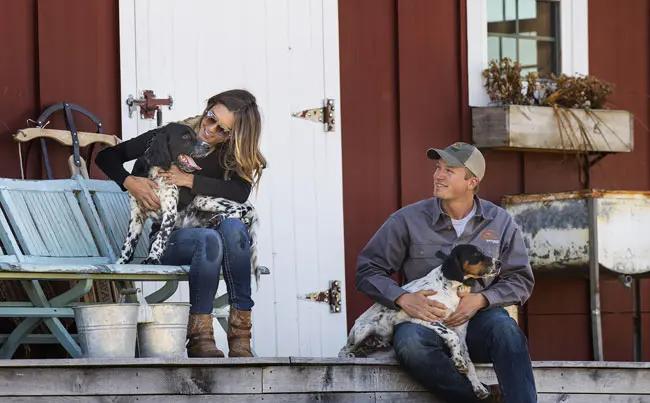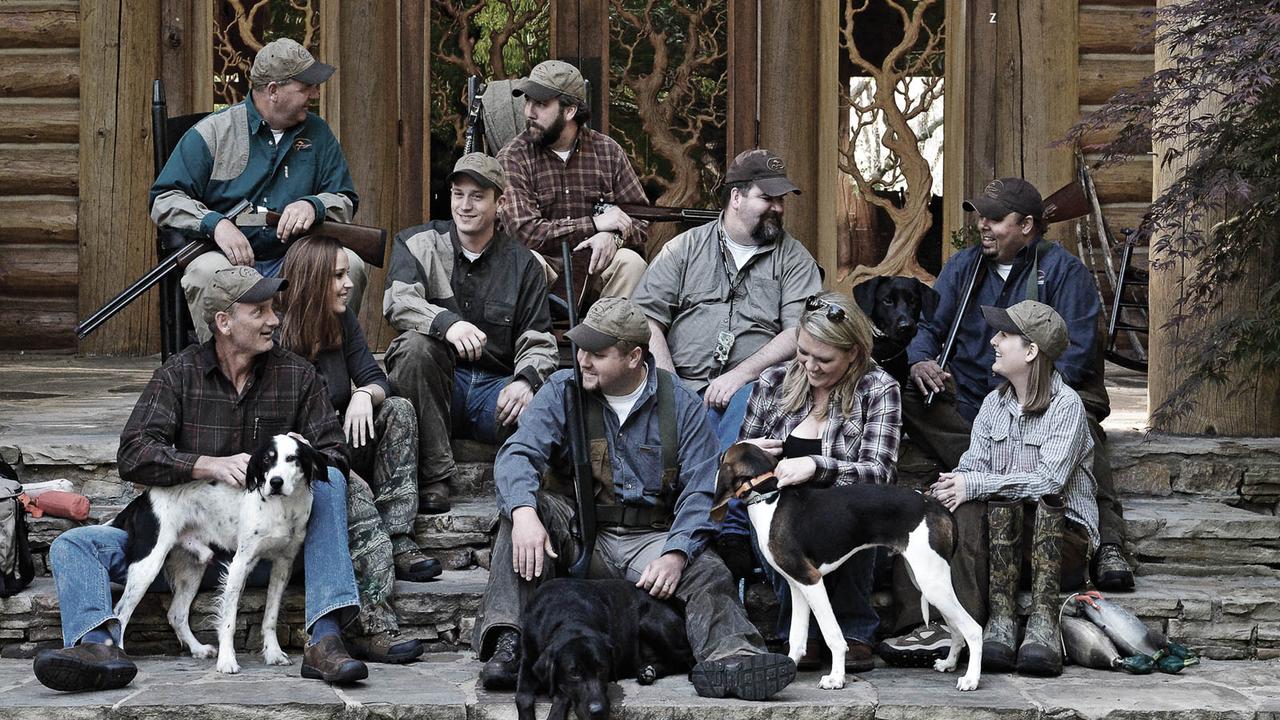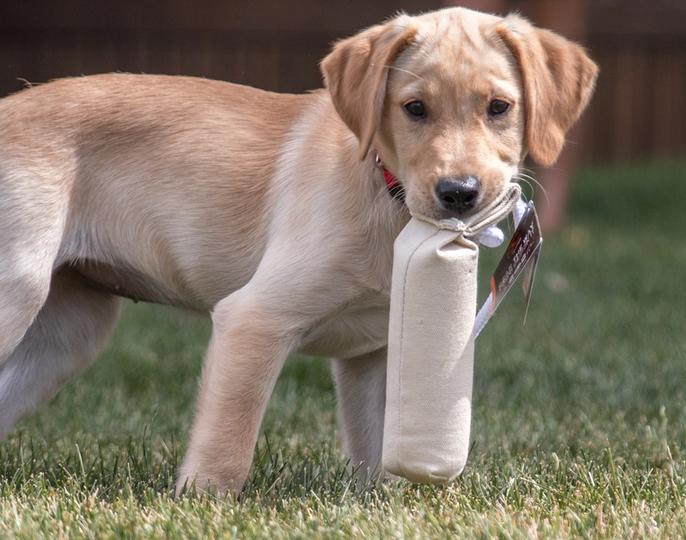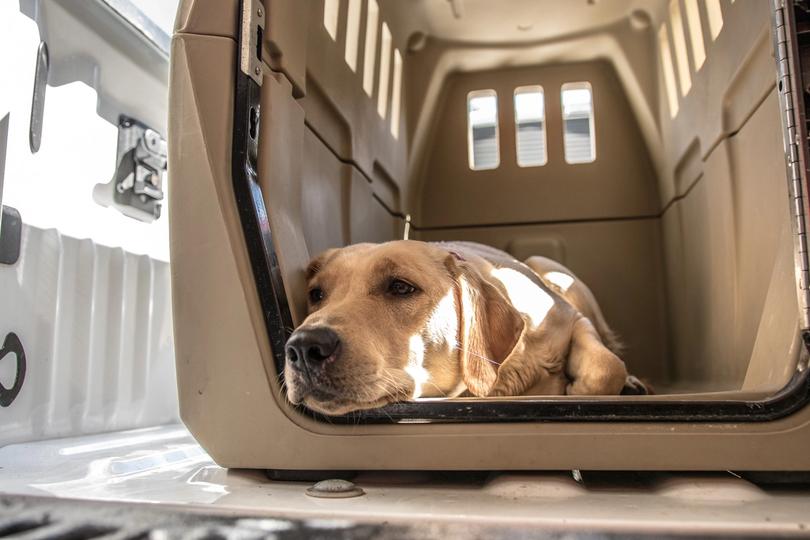
Gun Dog Training: 3 Things Your Puppy Should Learn
Posted by The SportDOG StaffIf you’re reading this article, you probably own, have owned, or are thinking about owning a gun dog puppy. To train your puppy to be a retrieving machine, here are three things that are crucial to teach it from day one.
1) Socialize, Socialize, Socialize
Your home is unfamiliar to your new puppy. Depending on where you got it, there may have been limited human interaction. This is the first time being away from momma and many sights and sounds are brand new.
During this period, you want to make sure you socialize your puppy. Take your new best friend everywhere you go. Your puppy must learn how to deal with other people, dogs, and sounds, or it could lead to big problems. Taking it on trips to the farmers’ market, walks, or to a baseball game, will be monumental in getting your puppy acclimated to its surroundings.
Quick tip: Get a leash, attach it to your puppy and tie it to your waist. Lead your puppy around the house while doing your everyday chores. You want your dog to heal in the field, so this is a great way to kick start that process. Remember to take it slow during this awkward puppy stage.
2) Teaching A Puppy To Retrieve
In the early stages of your puppy's life, you want to make learning to retrieve quick, fun, and unstructured. So, what resources will you need? Buy a couple natural canvas dummies and a check cord. Attach the check cord to the puppy’s collar, step on the other end, or keep it in your hands. This will enable you to guide your puppy when needed and maintain control. Get your puppy interested in the dummy by being playful. Move the dummy back and forth, let the puppy bite it, then toss it five to 10 feet in front of you and let ‘em run. All you should focus on right now is making retrieving fun for the puppy.
Once your puppy is returning the dummy to you, show it some love and be excited! Tell it “good dog” and give it a loving scratch behind the ear. The key with these sessions is to make them quick. Throw the dummy two or three times to begin, and increase throws and distance as you progress with your dog.
Training sessions should only last a few minutes with a seven- to nine-week-old puppy. You want to end each session with the dog wanting to go retrieve more dummies. The most common mistake is to throw too many dummies, which makes the dog become disinterested in the task. Also, don’t be overly strict with your puppy or it can become nervous about retrieving. Keep it short and fun and you’ll see progress.
Quick tip: Hallways are great places to teach retrieving. It gives a puppy limited places to take the dummy. Get the puppy on the check cord, close the doors in the hallway and toss the dummy down the hallway. Let the puppy go get it and give some guidance with the check cord to bring it back to you.
3) Crate Training
The crate is your puppy’s new home. This is where it will sleep, ride on hunting trips, vacations, or to a ball game. Your puppy needs to love it. It should be a safe place, which means nothing bad happens to the puppy in its crate. It’s not a place to send your puppy when being punished in the younger stages of its life.
Considering most of your communication with the dog will be verbal and visual commands, give the dog a word to associate with getting inside the crate, such as "kennel." This eliminates any confusion brought on by longer phrases.
Quick tip: Your puppy will do a little crying when you start this process. It's just like bringing a baby home. It's an unfamiliar environment and your puppy has to adjust. Some dogs adjust fast and some take a little longer. Be patient with the puppy and it will soon learn to love its crate.
Dogs have unique personalities. Your puppy may want to explore, or you may have one that doesn’t leave your side. Your puppy may have a bold personality, so you have to be firm, or you may have a sensitive one that needs things calm, simple, and slow commands. The most important thing to know is that each dog is different, so how you teach should vary.
The early days are exciting times for a new gun dog owner and puppy. Remember, keep training simple, and build a relationship with your dog. It’s going to be a long journey to make your puppy the retrieving machine you want as your partner, and like any partnership, it takes time to build trust.

The SportDOG Staff
Related Products
Orange Check Cord
Related Articles

3 Ways You’re Ruining Your Gun Dog Puppy
by Greg McGuffin
Owners of puppies make countless training mistakes. They may not know it initially, but it’s the little things that separate professional trainers from owners that dabble in training. As a professional trainer, I’ve see every type of misguided puppy and spent countless hours undoing bad habits. Commonly, when a 6-month-old puppy...

4 Good Reasons to Crate-Train Your Dog
by Rick Grant
One of the first things you should do when you get a new puppy is get him used to spending time in his crate, or portable kennel. If your dog lives in the house, the crate is a good place for him to be when you don’t want him underfoot....

